Salam. Welcome back. I understand some of you find these reviews very simple, and probably, a bit boring. However, since we have come a long way (and because we have a broad spectrum of students), I think it is necessary to have a review of the main topics we have so far covered. I am not reviewing every single lesson, just the main topics to make sure that we are all on the same page. Please be patient. Thanks.
Today, we will review /ra/ in simple present tense. Next week, we will be done with /ra/ after a review on it in simple future tense. Again, please be patient, and do the drills (when you do the drills, make sure you write them, read them and speak them out loud).
Rule number one:
Generally speaking, we need /ra:/ after transitive verbs (there are always exceptions). A transitive verb is a verb that NEEDS an object. Examples: to buy, to clean, to close, to eat, to open, to read, to see, to sell, to wash, to write.
Rule number two:
Generally speaking, if an object in English sentence is with ‘the’ (definite article), we need /ra:/ after that object in Persian. Examples: I buy the book = man keta:b ra mi kharam. I see the dog = man sag ra mi binam.
Rule number three:
Generally speaking, if an object is with ‘my, your (singular), his, her, our, your (plural), their’, we need /ra:/ after that object in Persian. Examples: I see your friend = man doostat ra mi binam. I sell her car = man mashinash ra mi foroosham.
All right. Please follow the examples and finish the job. Have fun! ????
Note 1: all examples are provided in Simple Present Tense.
Note 2: Please, please, please DO NOT confuse yourself with complicated sentences or exceptions. Be patient and work on these easy examples first. Gradually, you will learn how to deal with more complicated sentences or exceptions. Remember? Rome was not built in one day! Nor was Persian grammar!!! ????
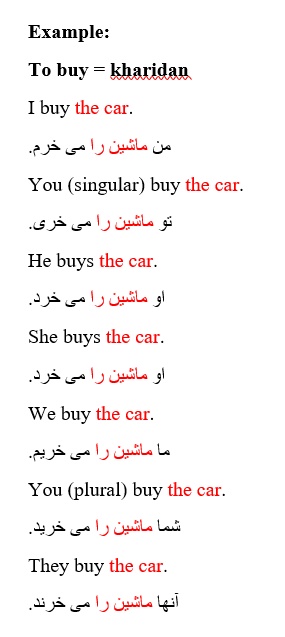
Now, continue…
To clean = tamiz kardan
I clean the house.
من خانه را تمیز می کنم.
You (singular) clean the house.
He cleans the house.
She cleans the house.
We clean the house.
You (plural) clean the house.
They clean the house.
Compare your answers with mine:
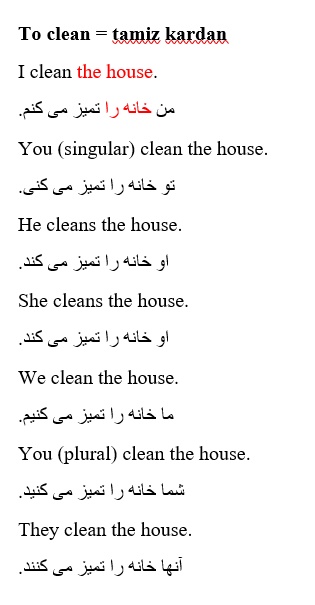
***
To close = bastan
I close the door.
من در را می بندم.
You (singular) close the door.
He closes the door.
She closes the door.
We close the door.
You (plural) close the door.
They close the door.
Compare your answers with mine:
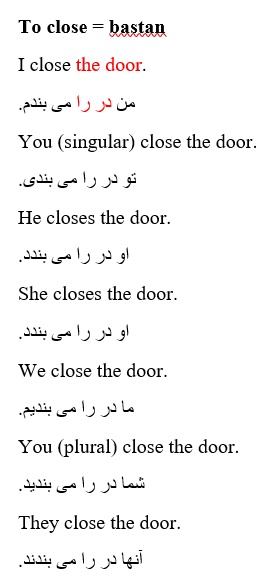
***
To eat = khordan
I eat the food.
من غذا را می خورم.
You (singular) eat the food.
He eats the food.
She eats the food.
We eat the food.
You (plural) eat the food.
They eat the food.
Compare your answers with mine:
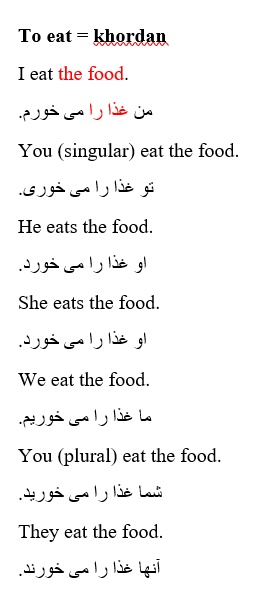
***
To open = ba:z kardan
I open the window.
من پنجره را باز می کنم.
You (singular) open the window.
He opens the window.
She opens the window.
We open the window.
You (plural) open the window.
They open the window.
Compare your answers with mine:
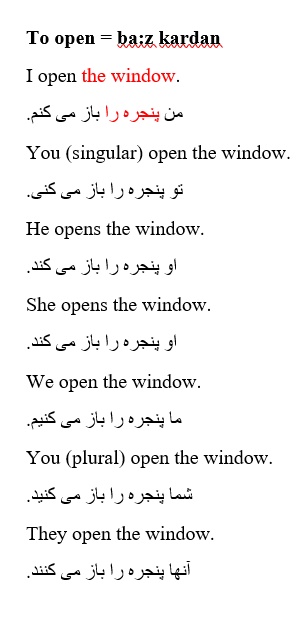
***
To read = kha:ndan
I read the newspaper.
من روزنامه را می خوانم.
You (singular) read the newspaper.
He reads the newspaper.
She reads the newspaper.
We read the newspaper.
You (plural) read the newspaper.
They read the newspaper.
Compare your answers with mine:
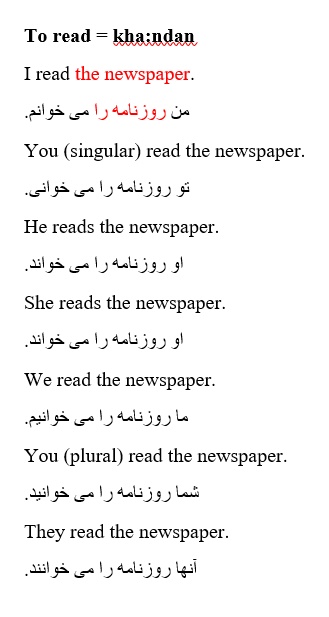
***
To see = didan
I see your brother.
من برادرت را می بینم.
You (singular) see your brother.
He sees your brother.
She sees your brother.
We see your brother.
You (plural) see your brother.
They see your brother.
Compare your answers with mine:
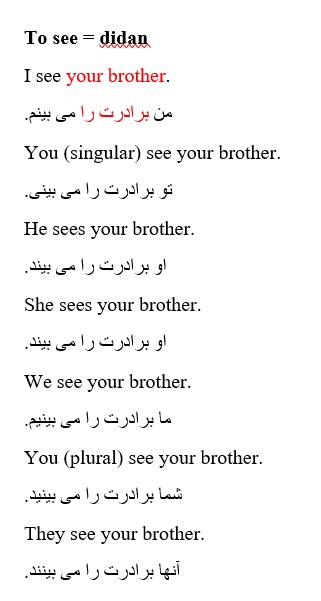
***
To sell = forookhtan
I sell my garden.
من باغم را می فروشم.
You (singular) sell my garden.
He sells my garden.
She sells my garden.
We sell my garden.
You (plural) sell my garden.
They sell my garden.
Compare your answers with mine:
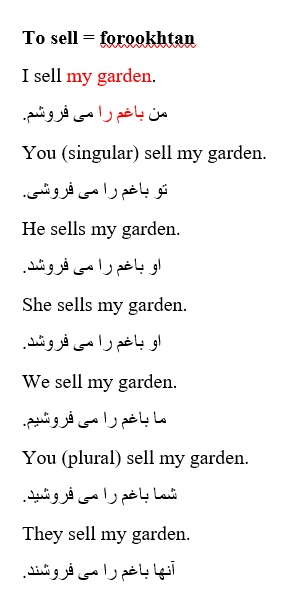
***
To wash = shostan
I wash his car.
من ماشینش را می شویم.
You (singular) wash his car.
He washes his car.
She washes his car.
We wash his car.
You (plural) wash his car.
They wash his car.
Compare your answers with mine:
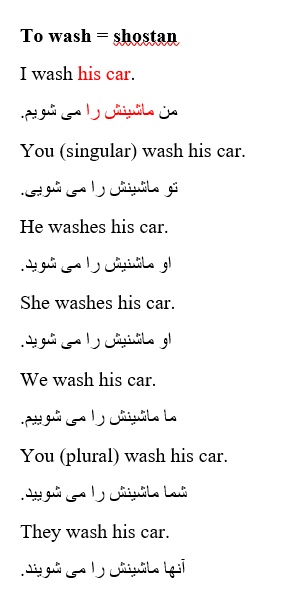
***
To write = neveshtan
I write her book.
من کتابش را می نویسم.
You (singular) write her book.
He writes her book.
She writes her book.
We write her book.
You (plural) write her book.
They write her book.
Compare your answers with mine:
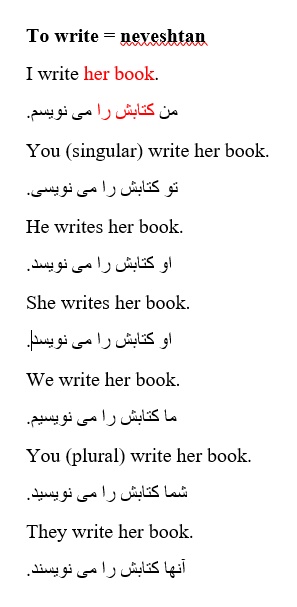
***
Ok. Hope you liked it. Keep practising. See you next week.
Next Lesson (186)